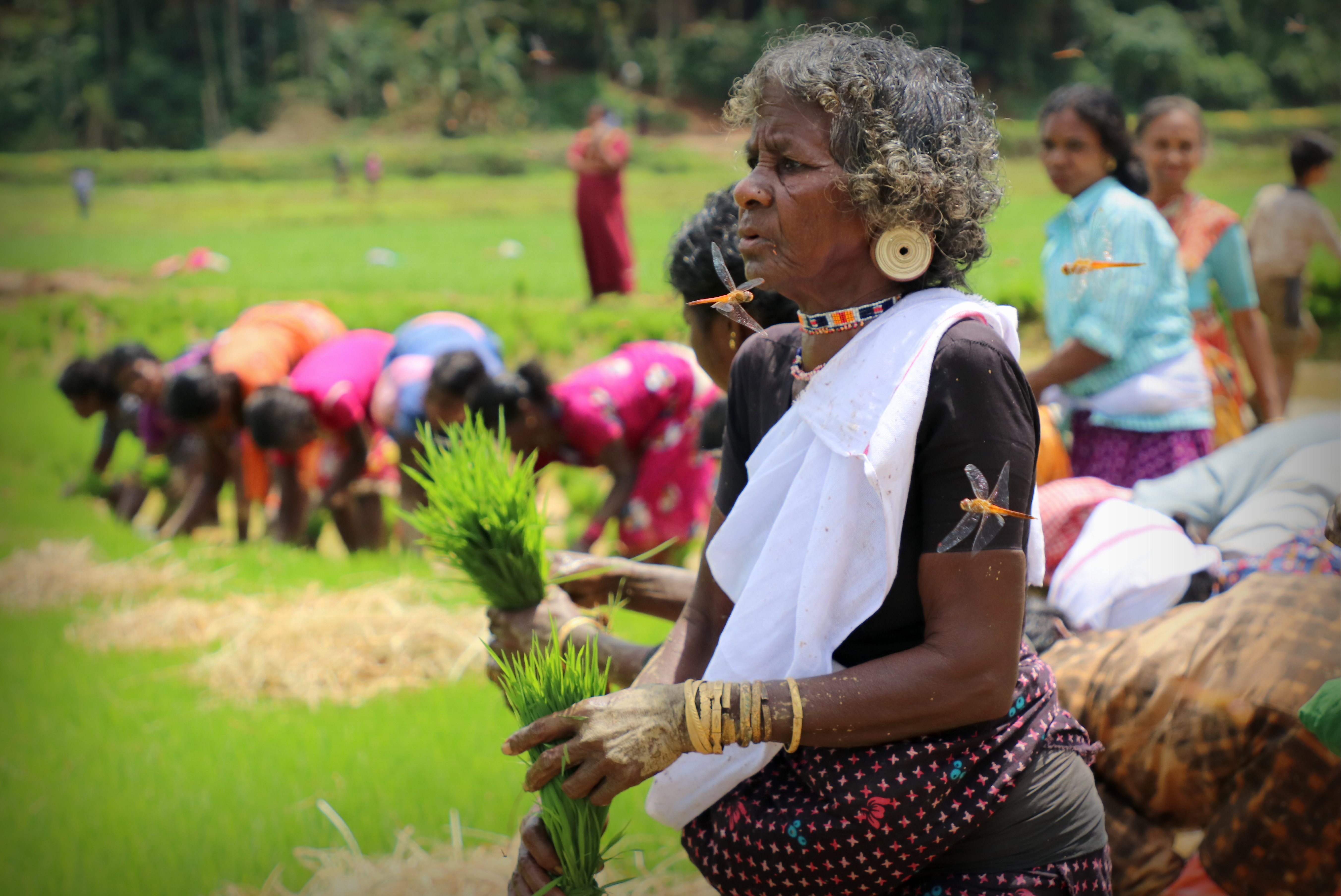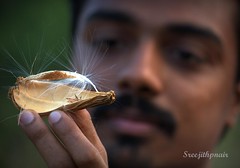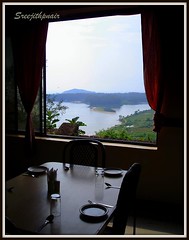This is an interesting time when the term community resilience is heard more frequently than ever before.
Working with the indigenous communities in the mountain landscape of Wayanad, I had the privilege to learn more about their resilient way of life and traditional knowledge. which in fact helped them in surviving this Covid phase.

The importance of cooperation among the community members in farming, knowledge in traditional medicine, shared economics (kind of a barter system) all helped them overcome the tough times with hardly any revenue due to lock downs.
Seems, it’s time to think seriously about the trade off between globalization and hyper localization 🙂




Awesome capture…
LikeLiked by 1 person
Thank you so much, Sarmistha 🙂
Working with the indigenous communities is quite an eye opener for me and the Covid phase taught what resilience really is …
LikeLiked by 1 person
Wholeheartedly agree, Sreejith. Communities must stand strong. I think this is something many of us in the UK have lost sight of, and to our great cost. Most communities here are dependent on outside agencies to deliver necessities; we have lost local capacity both in terms of knowledge and practicalities and especially food production. Your photo captures so much: cooperation and the spirit of cooperation. It is also very beautiful.
LikeLiked by 1 person
Thank you so much, Tish, for sharing your thoughts …
I think, rapid urbanization has created quite some issues. Along with globalization and market economy the intricate connection between producer and consumer is lost somewhere.
Now a days, even our villages are not self reliant for their food.
In most of the places, age old resilient practices were forgotten as cooperation among people in the communities became less.
But, Covid has shown us, what really matters in life?
Wherever, there was a close connect between community members, life was much better and people could survive the lock down phase and the severe economic impact that followed.
We could see, in some of the villages, people went back to the age old barter system, trading their farm produce with each other.
When young people came back from cities, they also started working in the fields and communities could survive.
It would be really interesting to see whether we will continue to follow the good practices and lessons learnt during this dreadful phase.
LikeLiked by 1 person
More power to local communities and local knowledge. I think this may be true for all of us wherever we are.
LikeLiked by 1 person
Absolutely…
That’s the essence for survival 🙂
LikeLiked by 1 person
Beautifully captured
LikeLiked by 1 person
Thank you so much, Athira 🙂
These wonderful people in the hilly region of Wayanad survived many a natural calamities and now Covid… we can learn so much from them and incorporate in our lives …
LikeLiked by 1 person
Yes we have to learn also
LikeLiked by 1 person
It is time to think about “trade off between globalization and hyper localization” and your photo is wonderful
LikeLiked by 2 people
Thank you so much Yvette, for your support and encouragement 🙂
Hope you have heard about Mohandas Gandhi or simply, Gandhiji, the father of our nation.
We was not just a politician or the leader of the freedom fight movement, he was a visionary …
In addition to his strong adherence to compassion, non violence etc; he was a strong believer in self sustained communities.
This concept is the base of Gandhian economic philosophy. When the organization I am part of, was founded, we were very much impressed by this concept and tried to model our business based on it.
Though we work in the domain of community tourism, our focus was community empowerment and promoting the resilient practices in the community.
I am so happy to let you know that, when the whole market system suffered during the Covid phase, these villages and the communities were faring much better.
The women in the picture is just an example …
Have a great week ahead 🙂
LikeLiked by 1 person
Great portrait of this determined-looking woman.
LikeLiked by 1 person
Thank you so much, Sylvia 🙂
The woman in picture is from one of the oldest indigenous communities in South India.
Traditionally they are agriculture laborers.
Though the Covid pandemic disrupted the life of many, people of the indigenous communities survived this phase with their traditional knowledge and resilient practices.
LikeLiked by 1 person
Did you catch three dragonflies around her? That’s wonderful. I’m glad to hear about this community in India that is using traditional practices to stay resilient. I heard of something similar earlier in the year, from Fiji, where they have returned to a bartering system due to COVID impacts on the economy.
LikeLiked by 1 person
I am sorry for the late response, Crystal, and you said it right, many a communities in our villages went back to the old barter system during the lock down days when their source of income was completely drained.
The women in picture is from an indigenous community in South India and they were traditionally farm labors. This image was captured during the replanting of paddy after they faced complete crop loss in the floods.
These communities have the knowledge of resilient seeds and practices which they could use in adverse situations.
Thank you so much for your visit and sharing your thoughts 🙂
LikeLike
Sreejith, I couldn’t agree with you more. Where I live those in “charge” have forced us to live so isolated from each other which is still today in effect. Too many have lost their critical thinking and are now just going along with what is being told of them instead of THINKING of a NEW way of doing things. This isolation is very very unhealthy and is going to have long lasting effects. It breaks my heart to see fear of others, fear of being human, fear of even living take over and control people’s lives. To see the picture you showed, gives me HOPE that those of us in this country (USA) start unifying despite “government” demanding disunity. Bless you for this post of hope!!
LikeLiked by 1 person
Thank you so much, Amy, for sharing your very interesting comments and I perfectly agree with your views.
‘Divide and rule’ was the methodology used by the colonial powers in India before our independence and sadly, the same strategy is used by the ruling political parties to acquire power and remain in power, post independence.
The most interesting thing that we have seen in the indigenous communities is their community living, cooperation and respect for nature.
Using their traditional knowledge and practices they could survive challenges including pandemics. We term them resilient practices and trying to learn from them.
LikeLiked by 1 person
These wise people respect the law of nature; we have a lot to learn from them.
LikeLiked by 1 person
You are absolutely, right, Sidran …
They lived with nature and in tune with it and never tried to master it.
Their traditional knowledge and resilient practices helped in times of natural calamities and Pandemics.
LikeLiked by 1 person
Agree Sreejith! Well said! and also lovely capture!
LikeLiked by 1 person
Thank you so much, Jyothi 🙂
The indigenous communities in Wayanad were better placed to face the Pandemic than the city folks, I found.
This image was captured during pre covid times, at a collective framing programme…
LikeLiked by 1 person
“hyper localization” is new to me…my brief Google search noted that there are different understandings; i.e., client focused, buying local. Would you mind clarifying for me? The image is amazing…the colors and yes, the dragonflies…especially the one that seems to be resting on the woman’s sleeve.
LikeLiked by 1 person
Hello Brenda, Thank you so much for your thoughtful comments 🙂
By ‘Hyper Localization’ I meant, the self sufficiency of villages or local communities.
From my experience, the first one month of lock down (March to April), changed many a practices of people around me. People stopped going to hyper markets and started buying from the small shops in the villages. They in turn sourced many of their stuff especially food produce from nearby villages.
When branded products were not available local produce took it’s place.
Most importantly, in some communities, the age old barter system was clearly seen in practice, exchanging things without the involvement of money.
Most of these practices won’t last long for sure, but, I am hopeful that at least a few will stay 🙂
LikeLike
Great, uplifting post!
LikeLiked by 1 person
Thank you so much, Kendall …
The terms such as resilience and sustainability became quite common during the Covid phase, but, we learnt the importance of resilience form these indigenous communities…
Their life and lifestyle did change over the years, but their traditional knowledge helped them survive this phase.
They were deep rooted with their community and they helped each other at times of need.
LikeLike
If there is something important to come out of the Covid crisis, it is understanding and supporting the local community ~ beautiful post, Sreejith!
LikeLiked by 1 person
Absolutely…
I totally agree with your point, Dalo 🙂
As we work with the local communities, we learnt that, they are much adaptable to such disruptions like natural disasters and pandemics than the urban crowd.
Their sense of cooperation and traditional knowledge helped them survive the phase.
This Pandemic raises many questions on the development model that we all are following for decades, migration to cities and centralized planning etc;
As an organization, we also learnt the importance of resilience from the indigenous communities and now trying to incorporate it in our business strategy …
I am sure that, there will be many a positive changes we can expect in post Covid phase. In fact, an industry like tourism could survive only with such changes …
Thanks again for your time and appreciation 🙂
LikeLike
A very interesting perspective in this one Sreejith – both the way you captured the image and the message you drew for us. Community self-sufficiency seems to have fallen by the wayside in most places but there are some interesting developments here, such as small community farms sponsored in local neighborhoods where vegetables and fruits are available to those who will work to maintain the effort. Perhaps one of few good things to come from the virus its a new-found dependence on connecting with our neighbors. Wonderful image.
LikeLiked by 1 person
Thank you so much Tina, for your appreciative and thoughtful comments 🙂
You are absolutely right, there are indeed some positive outcomes from this Pandemic and it would be really interesting to see whether people will continue to follow them from now on.
I am sure, learning from this phase, people will come up with some sustainable models which are resilient in nature.
In farming I can see such developments in my place and tourism is another area which demands changes…
LikeLike
Thanks! In a similar vein — https://petersironwood.com/2020/11/03/opponent-does-not-mean-enemy/
LikeLiked by 1 person
Thank you so much for your visit and follow, John 🙂
It was really interesting to read your latest post ‘opponent does not mean enemy’.
I think, the whole world is waiting to see what happens in US in a couple of days …
Great to be in touch 🙂
LikeLike
The message at the end 👌
LikeLiked by 1 person
Thank you so much, Akhila, for your visit and comment 🙂
LikeLiked by 1 person